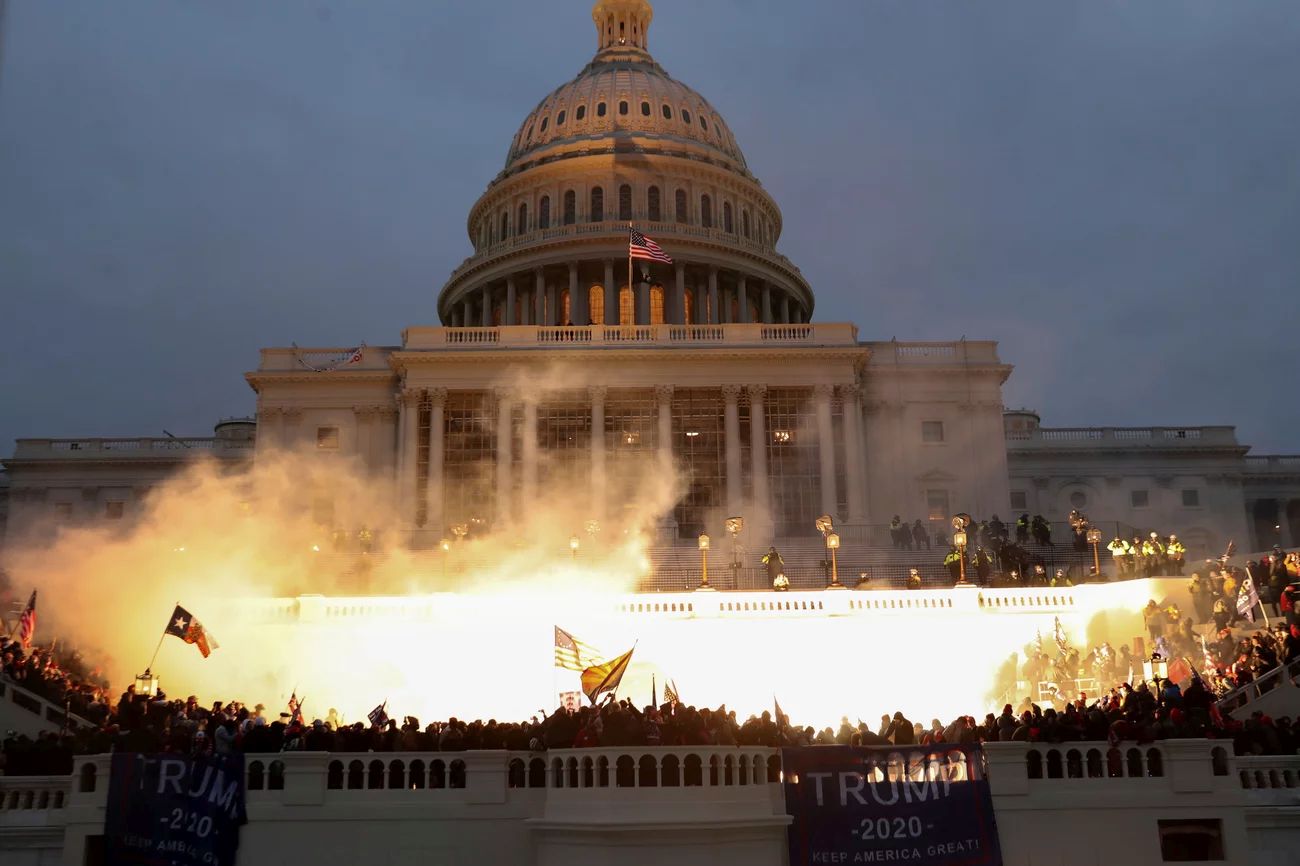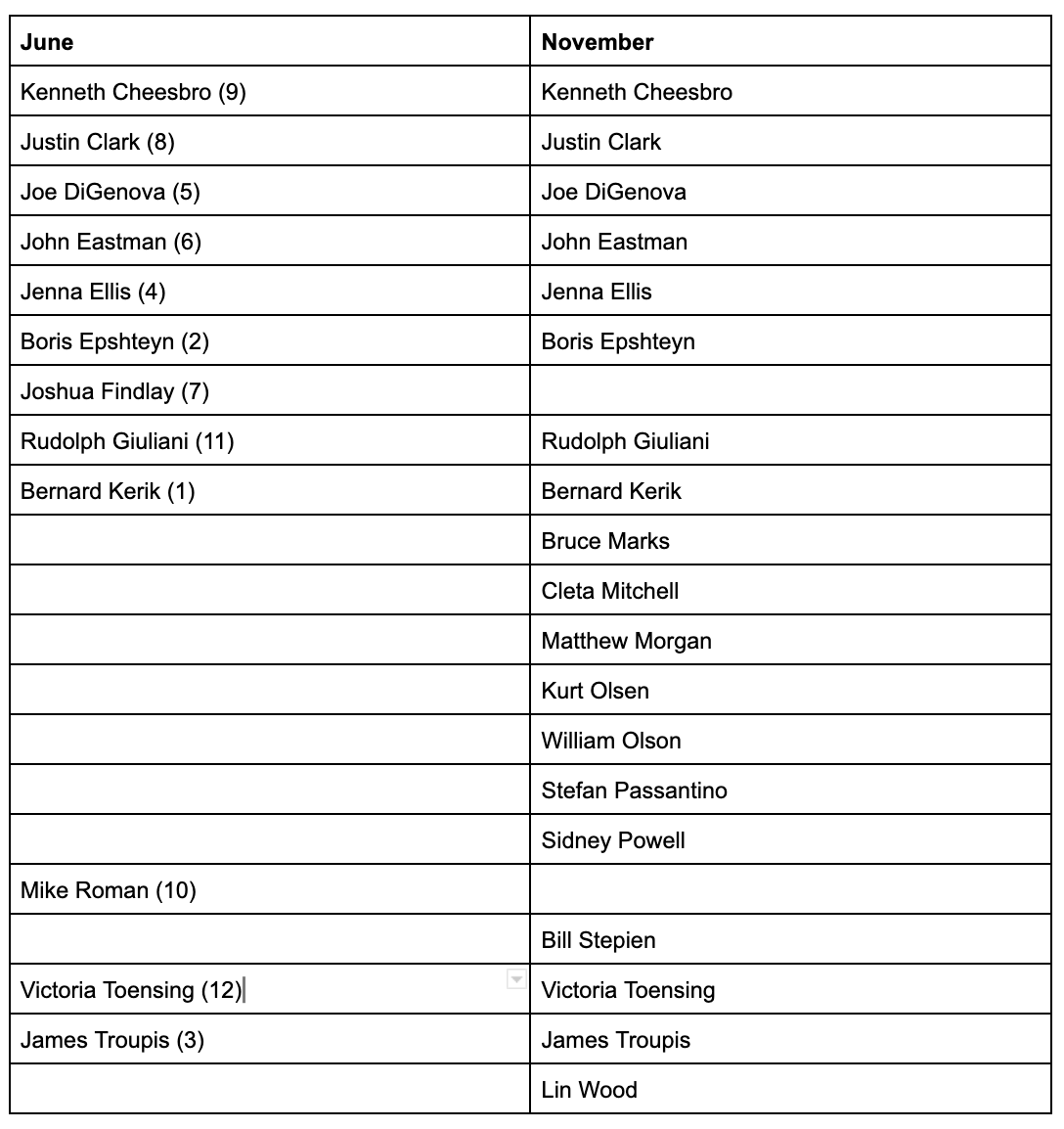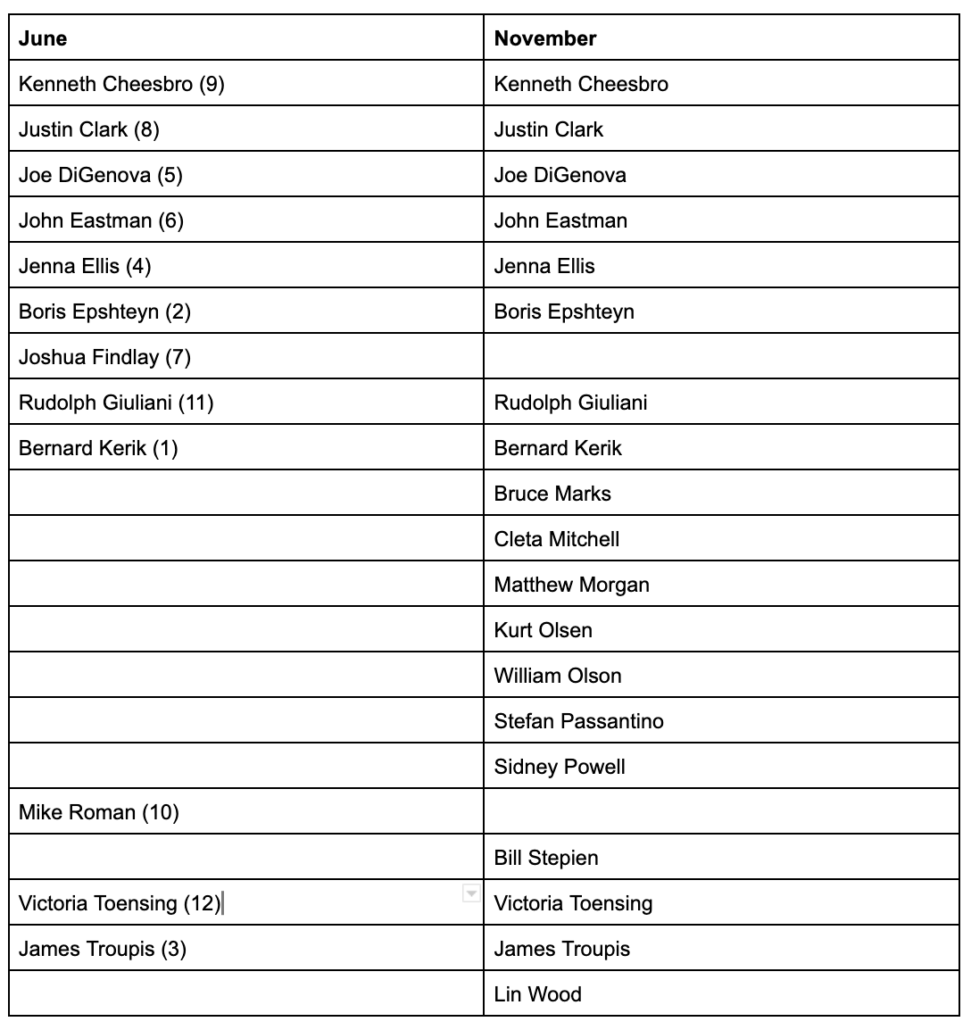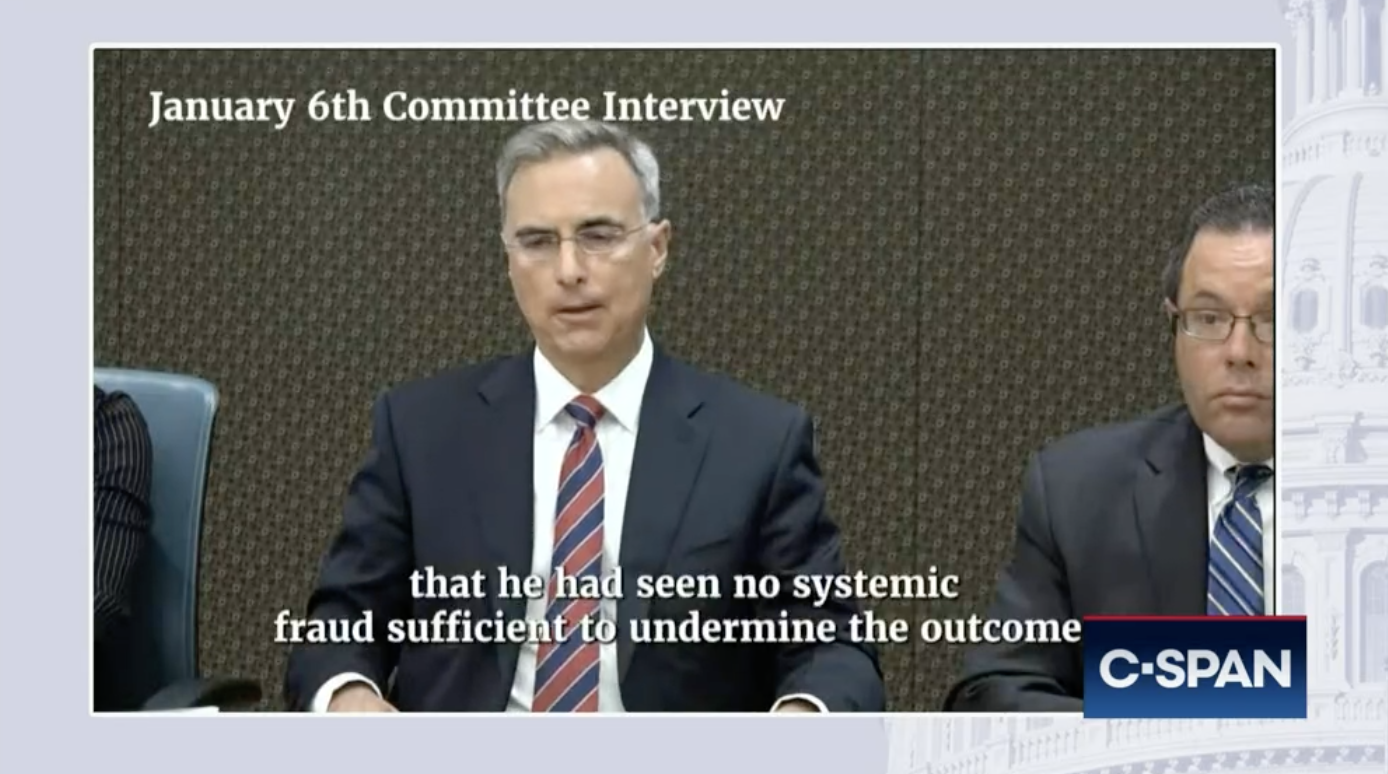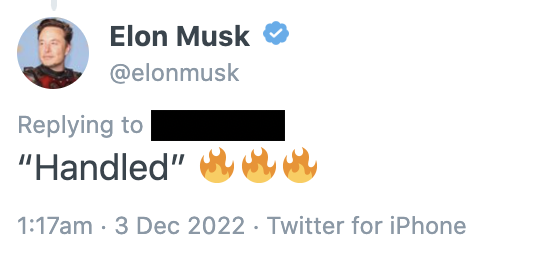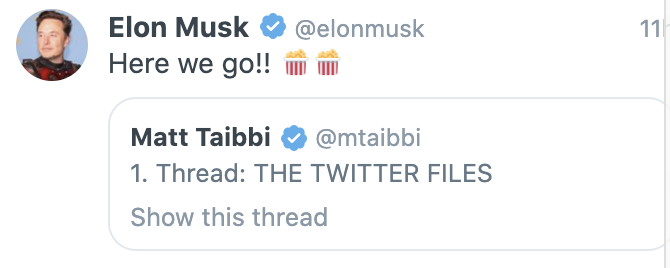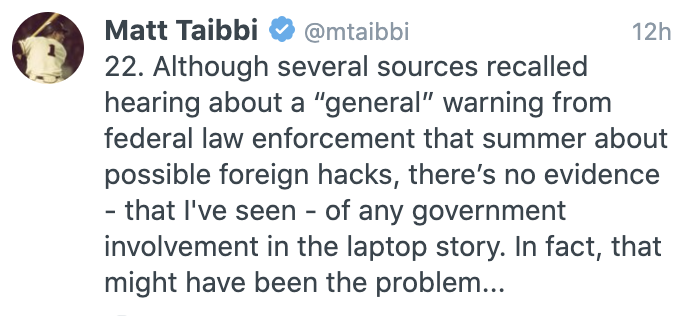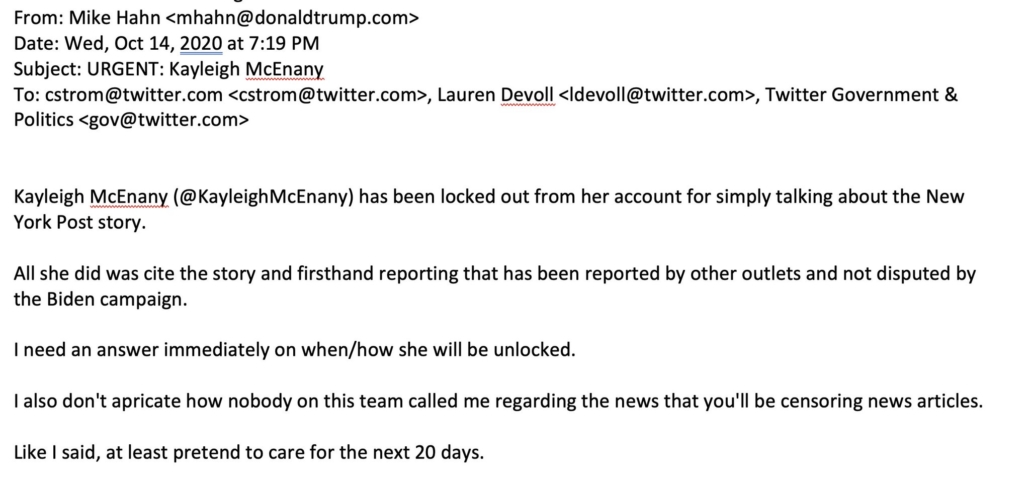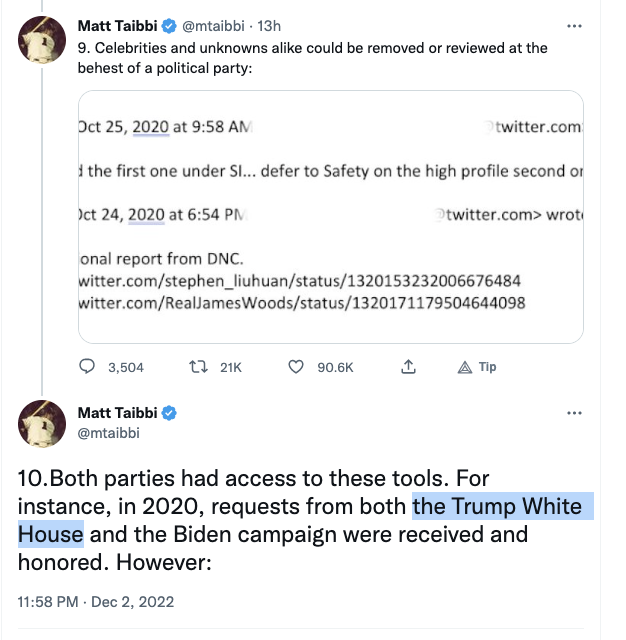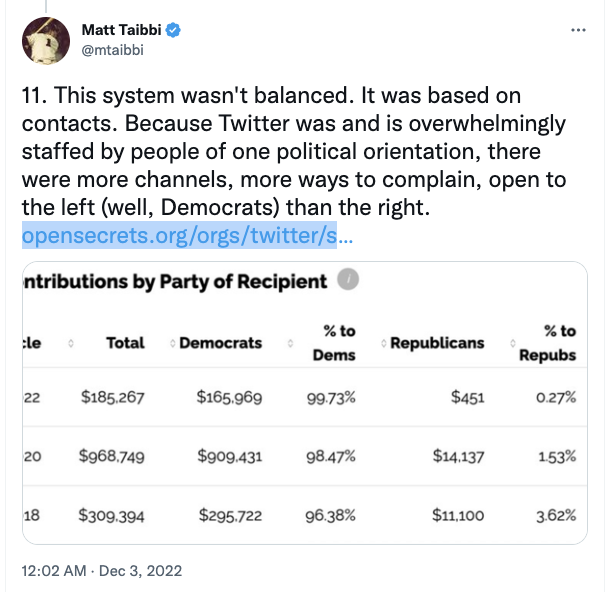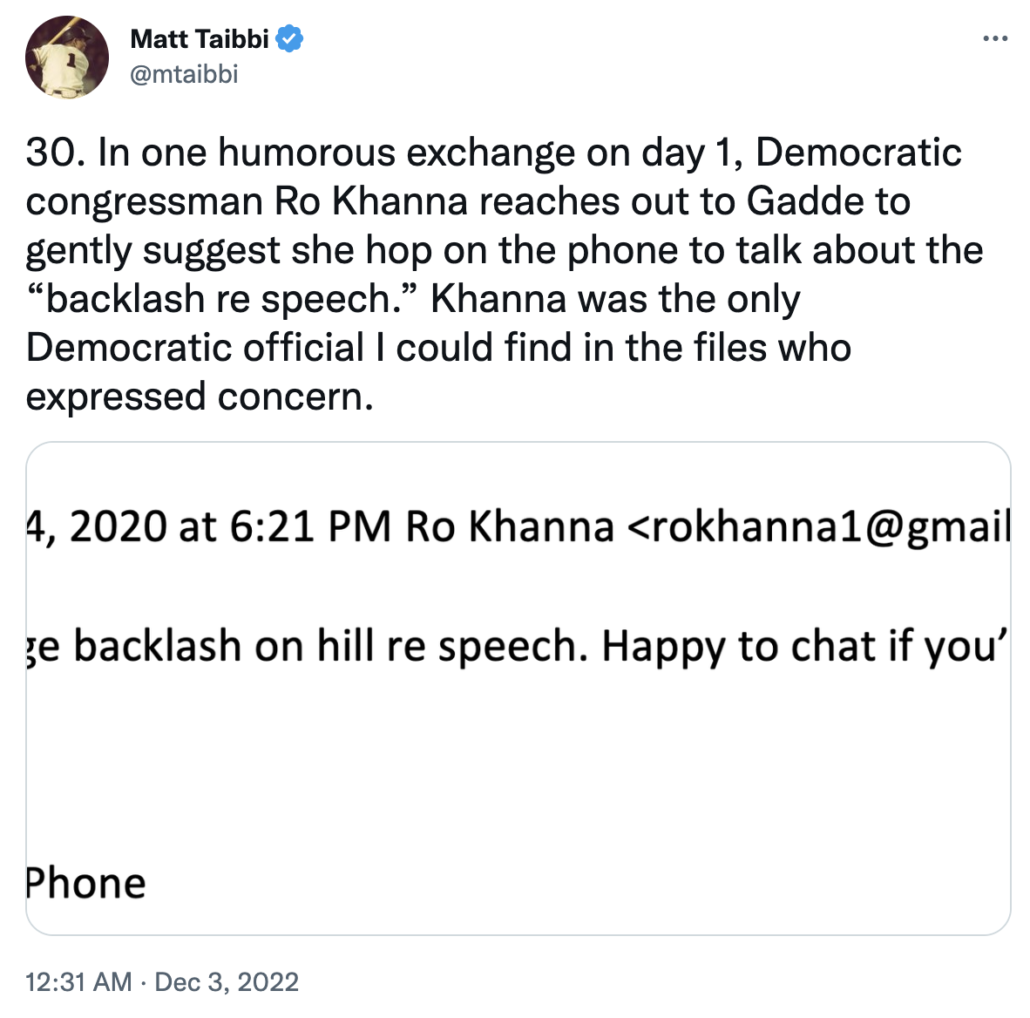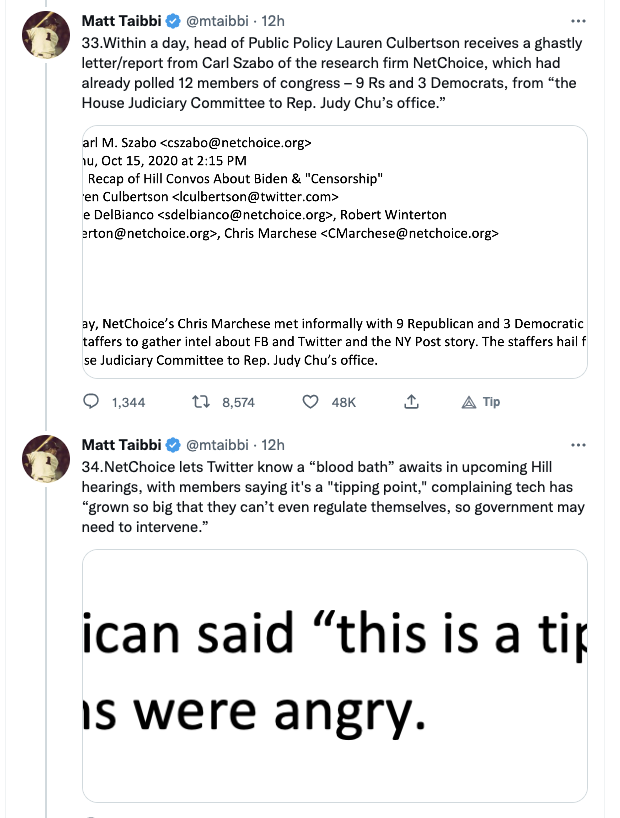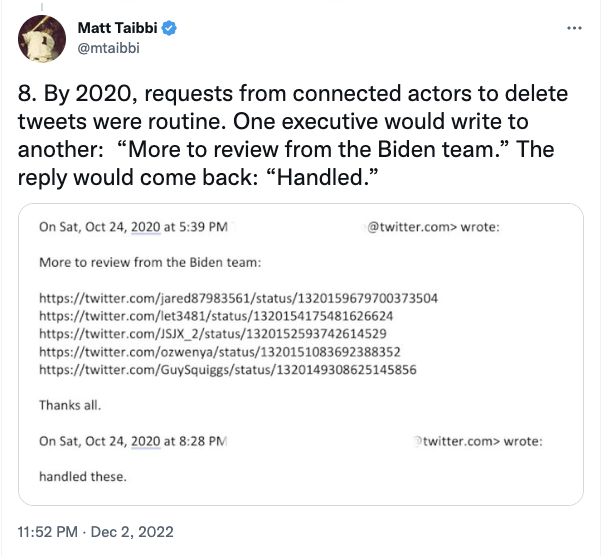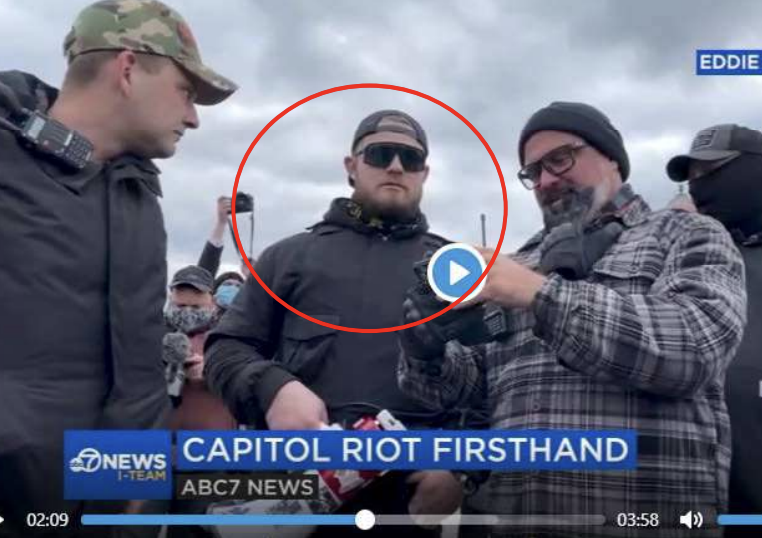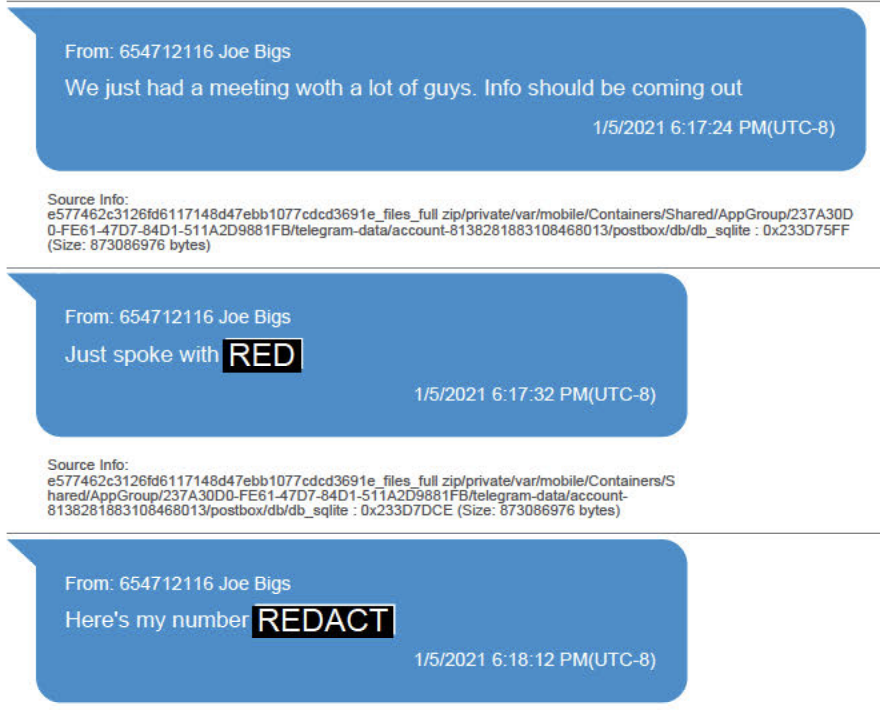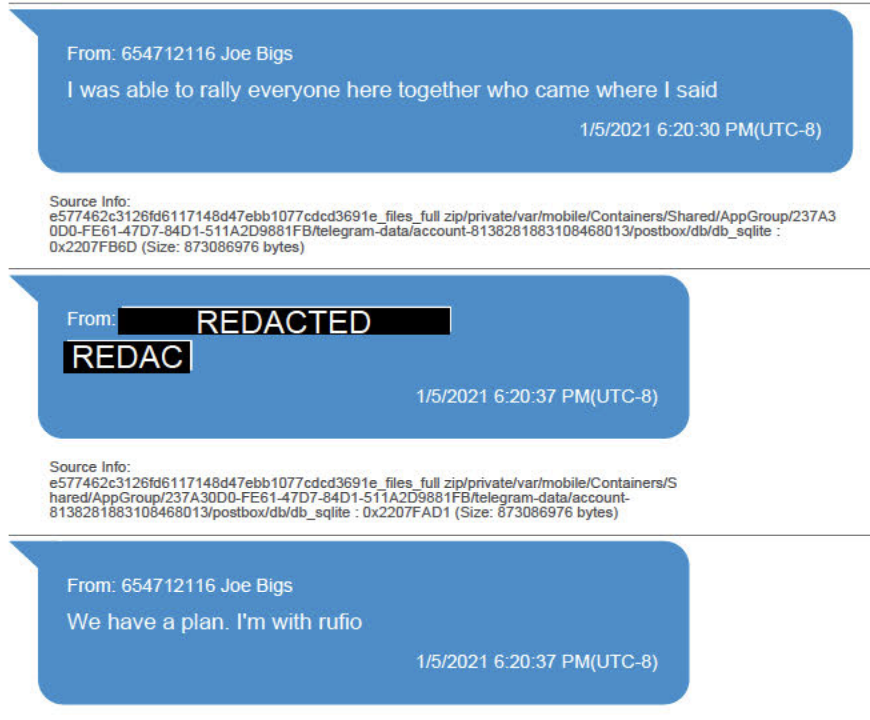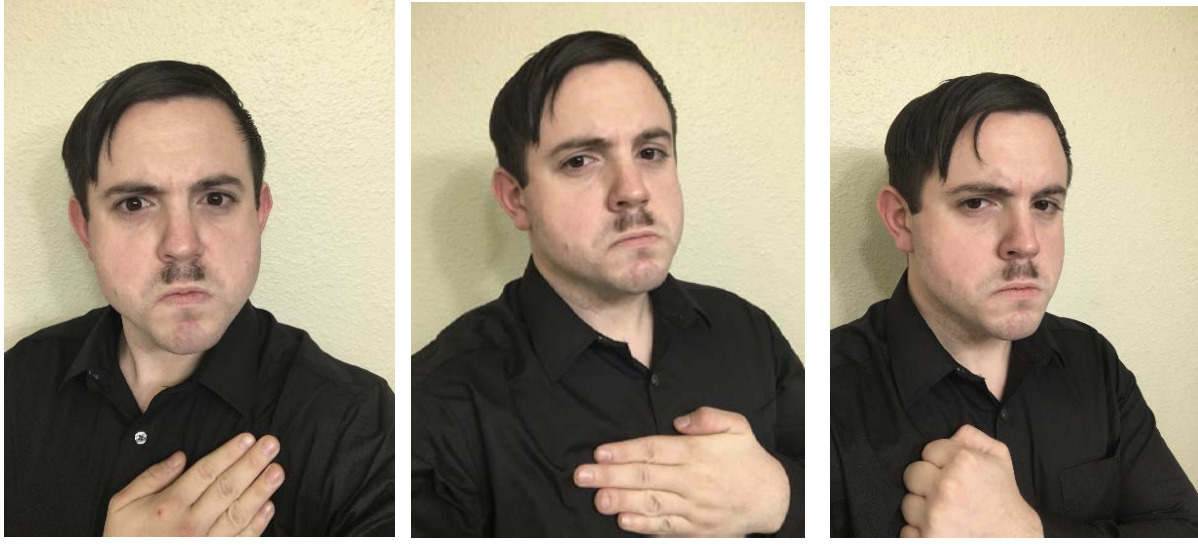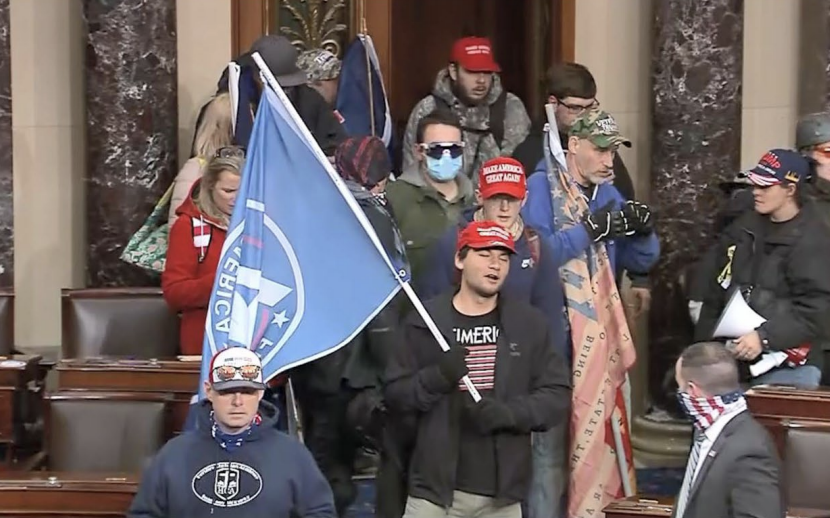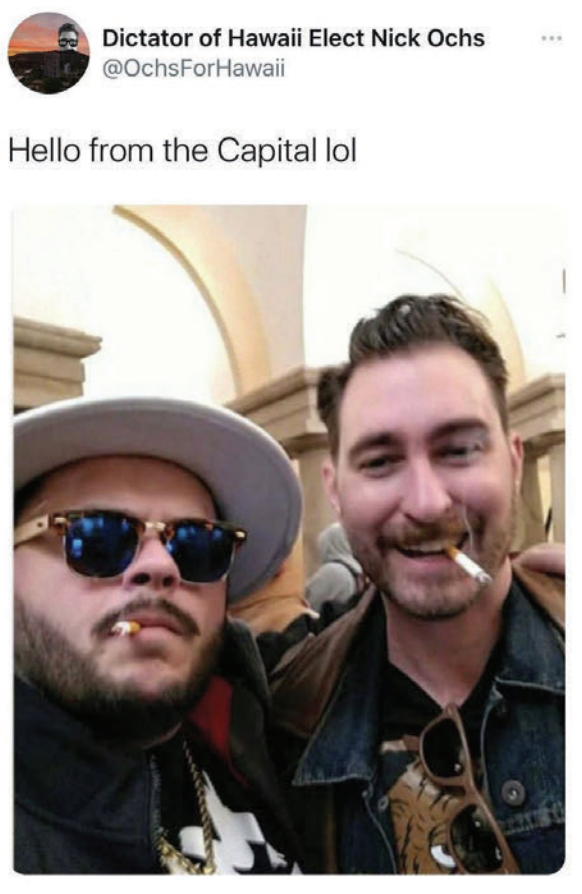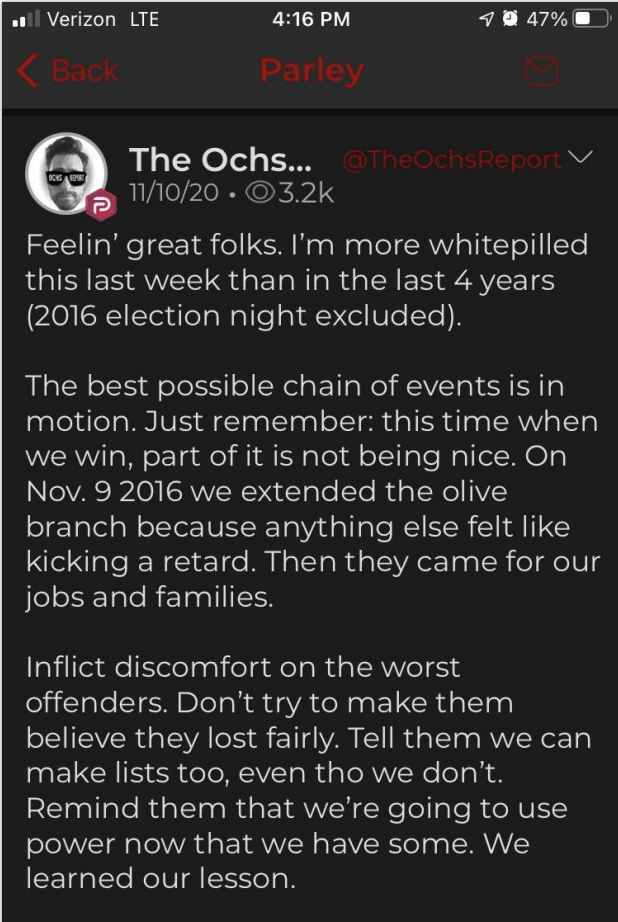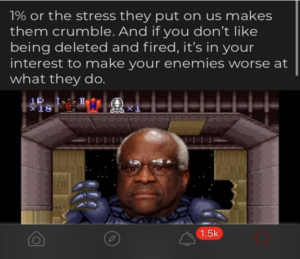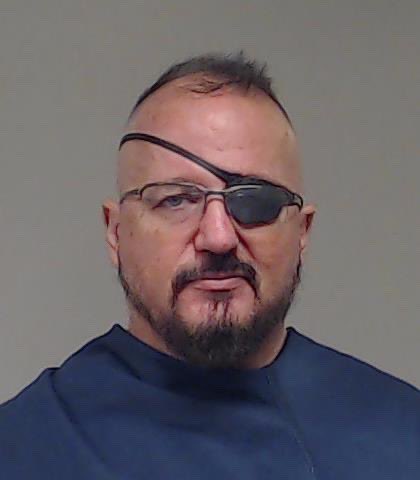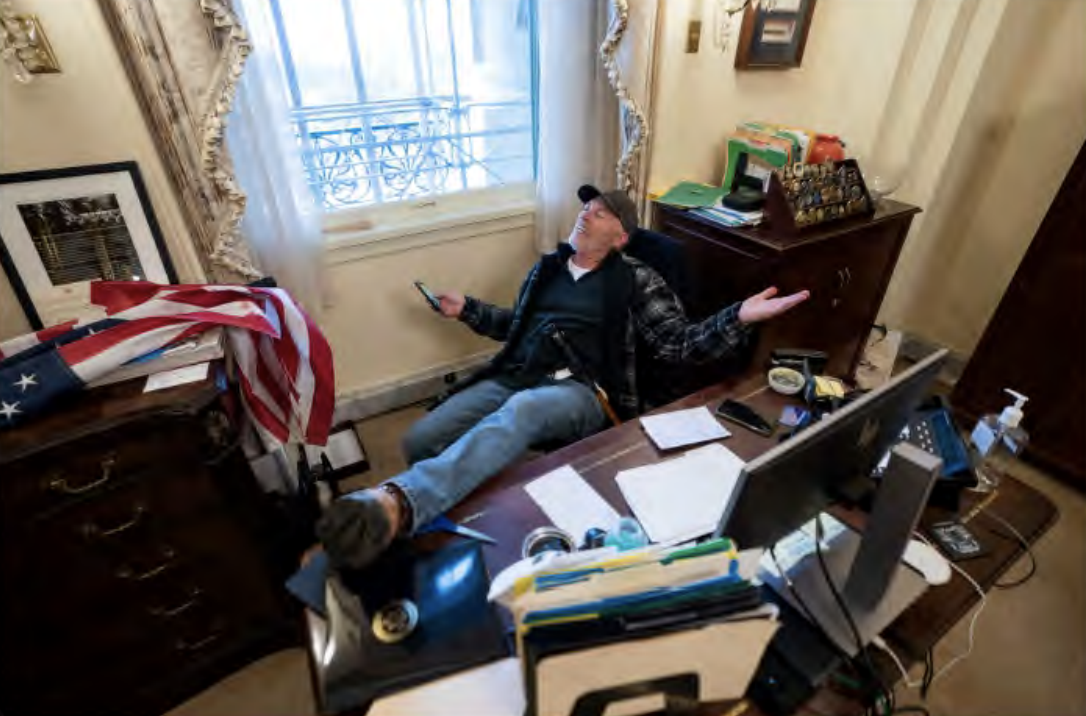A Counter Perspective: On the House January 6 Committee’s Impending Referrals
[NB: it’s an absolute must to check this byline, thanks. /~Rayne]
We don’t all agree here at emptywheel all the time. Our reactions to the news about the House January 6 Committee’s intent to issue criminal referrals is one of those occasions.
You can read bmaz’s take at this link. If you’ve been reading the site’s comment threads since the first posts here about the January 6 Committee’s work, you already had a pretty good idea what bmaz’s sentiments have been as he’s been quite clear.
In essence bmaz found Tuesday’s news about the Committee’s expected criminal referrals
– attention seeking (“media whores,” “preening,” “infomercial”);
– the referrals an activity which “means absolutely nothing” because the Department of Justice will prosecute on their own.
One point of contention between us has been the nature of the Committee’s work. bmaz has called it political, referring to the committee negatively as a “political body” and the criminal referrals “useless and meaningless political gestures.”
Yes, it is political. That’s how governance happens, through politics.
From Merriam-Webster dictionary:
1 a: the art or science of government
b: the art or science concerned with guiding or influencing governmental policy
c: the art or science concerned with winning and holding control over a government2: political actions, practices, or policies
3 a: political affairs or business
especially: competition between competing interest groups or individuals for power and leadership (as in a government)
b: political life especially as a principal activity or profession
c: political activities characterized by artful and often dishonest practices
From Cambridge Dictionary:
the activities of the government, members of law-making organizations, or people who try to influence the way a country is governed
From Macmillan Dictionary:
the activities and affairs involved in managing a state or a government
the profession devoted to governing and to political affairs
social relations involving intrigue to gain authority or power
the opinion you hold with respect to political questions
the study of government of states and other political units
In the simplest, bluntest terms, politics is how shit gets done by groups who are not all of the same mind at the same time. Governance in a democracy is politics, it is political activity.
Congress is inherently a political body, its activities are political, and the government it legislates to execute laws is a function of politics at work.
~ ~ ~
There is nothing wrong with politics except when it denies the rights of individuals to exist, stripping them of agency and autonomy for the purposes of an exercise in partisan ideology and/or autocratic power, and/or personal venality rather than to achieve the aims of our shared social contract, the Constitution.
It is particularly egregious when the persons aiding and abetting an attack on the Constitution are those who have not only participated in politics for the purposes of serving as an elected representative and then sworn an oath to defend the Constitution and its aims:
We the People of the United States, in Order to form a more perfect Union, establish Justice, insure domestic Tranquility, provide for the common defence, promote the general Welfare, and secure the Blessings of Liberty to ourselves and our Posterity, do ordain and establish this Constitution for the United States of America.
What happened on January 6, 2021 at the U.S. Capitol Building in Washington D.C. was the furthest thing from a more perfect Union. The acts of thousands sought to undermine the domestic tranquility of millions to the personal benefit of one man.
This was not politics but its antithesis, an attempted smash-and-grab intended to deny liberty and justice obtained through political activities, by obstructing government operations in the transition and transfer of a democracy’s leadership.
~ ~ ~
The Constitution to Article I, Section 1 confers upon Congress “All legislative Powers” – this is the legitimization of a political body to effect the nation’s governance.
Congress’s Powers under Article I, Section 8 include:
To make Rules for the Government and Regulation of the land and naval Forces;
To provide for calling forth the Militia to execute the Laws of the Union, suppress Insurrections and repel Invasions;
as well as
To make Rules for the Government…
To exercise exclusive Legislation in all Cases whatsoever, over such District (not exceeding ten Miles square) as may, by Cession of particular States, and the Acceptance of Congress, become the Seat of the Government of the United States, and to exercise like Authority over all Places purchased by the Consent of the Legislature of the State in which the Same shall be, for the Erection of Forts, Magazines, Arsenals, dock-Yards and other needful Buildings;-And
To make all Laws which shall be necessary and proper for carrying into Execution the foregoing Powers, and all other Powers vested by this Constitution in the Government of the United States, or in any Department or Officer thereof.
[bold mine]
Without exercising these powers Congress cannot assure its obligations under the Constitution are completed.
In the specific case of January 6, Congress was attacked in its own seat of power, its election-related proceedings obstructed by domestic terrorists engaged in seditious conspiracy. Americans died, both attackers and defenders. Public property was destroyed.
Response by law enforcement and other security forces like its militia — the National Guard — was not satisfactory leading up to and during the January 6 attack. The risk of domestic terror remained high even after that date.
The person who stood to benefit most from the terror and the obstruction wrought was the head of the executive branch, whose function as executive is subject to legislation and oversight by Congress. That same person may have abused his office to further his personal interests.
It is wholly natural to expect the House to investigate the terror attack on Congress’s offices and its proceedings; it’s part of Congress’s job.
The attack aimed to stop the activities essential to the republic. To that end the House established the January 6 Committee and the mission which the committee was to fulfill.
The mission included releasing a final report of findings to the public, with interim reports as necessary, with the ultimate goal specification of corrective measures to remedy failings and improve the security posture of the Capitol and the nation, without regard to the political party helming either house of Congress or the executive branch.
All of that is politics. All of that is political. That is the nature of government in a democracy.
~ ~ ~
With regard to the complaint the January 6 Committee acted like “media whores,” this site’s comments certainly didn’t reflect that.
The number of comments published every week about when the public would hear or see something from the Committee in the way of action whether subpoenas or hearings or reports or referrals could be annoying – as annoying and frustrating as the complaints about when the Department of Justice was going to do something, anything.
The number of tweets the Committee has published to date are 627, its press releases which may duplicate tweet content amount to less than 90 over 14 months time — hardly an attention seeking volume.
Marcy wrote a number of posts about the DOJ doing something right under everyone’s noses while pundits complained on television and in social media nothing was being done.
While the DOJ was crunching away on the largest investigation it has every conducted, the J6 Committee did likewise while trying to avoid further obstruction by members of Congress as well as persons who continued to support Trump and his Big Lie.
If anything the American public didn’t hear enough about what the Committee was doing. As of late October, the Committee had issued at least 100 subpoenas; the media reported in any detail only on the most intransigent subjects like former Trump advisor Steve Bannon.
If the Committee had been media whoring, we would have had every jot and tittle crammed in our faces daily and weekly about the subpoenas and consequent testimony – but we saw very little, save for nine hearings taking less than 40 hours time.
What we did see was distilled for a contemporary audience flooded with other media, an audience which wouldn’t have the patience to deal with thousands of hours of testimony and evidence.
It’s quite possible the opposite is true, that the Committee didn’t do enough to share its work in progress with media. Had it done more earlier to release testimony and evidence, perhaps the GOP would have had to counter these reports instead of sowing manufactured fear, uncertainty, and doubt about inflation and the economy’s direction during the mid-term elections.
Perhaps control of the House might not have gone to the GOP if the Committee had been more open about the partisan nature of the attack on the Capitol.
You can be certain had the shoe been on the other foot, with the GOP leading an investigation, it would have been another pointless circus like the Benghazi hearings which GOP congresspersons admitted were purely partisan stunts intended to suppress approval of Hillary Clinton ahead of the 2016 election.
The Benghazi hearings were politics without governance, not one passed bill as a result of all the hot air.
That 2015 committee’s work “means absolutely nothing” even seven years later, except as a cautionary tale about partisan hackery in lieu of governance.
~ ~ ~
Again, not all the team here at emptywheel will agree about the J6 Committee’s work, particularly the anticipated criminal referrals.
Marcy mentioned in comments,
… If it’s a referral on 1512 grounds for Trump, I’m not all that interested. If it’s a means to refer the witness tampering for specific witnesses that would not have been replicated before DOJ, by all means refer.
By “1512” she means Title 18 U.S. Code 1512 – Tampering with a witness, victim, or an informant – I’m not certain which subsection(s) she means.
The Committee will likely refer whatever it found, though, without regard to the DOJ’s progress so far. (The Committee should not know much about the DOJ’s investigative efforts.)
If there is to be corrective action recommended and corresponding legislation drafted, submitted, debated, and passed, there must be a documented need for the change.
We should expect to see some duplication between J6 Committee and DOJ for this reason: they have different objectives.
Because of the Constitution’s Article I, Section 6 Rights and Disabilities, the Committee has more power and latitude to question and demand accountability of its own members within its own chambers, should its investigation have uncovered evidence of criminal behavior by congresspersons who supported Trump’s Big Lie efforts.
Further, the J6 Committee has an obligation to history and not just its legislative duties. It needs to document what crimes it found had been committed against it, the political body which acts as the representative of the people in its creation of laws to create a more perfect Union.
It’s not enough to report a crime has been committed against the people’s representatives. The people must demand with criminal referrals that the highest law enforcement body investigate and prosecute who attacked our democratic republic, even if DOJ has already begun this effort.
As Ben Franklin said in 1787 in response when asked what form of government the Constitution Convention had established: “A republic, if you can keep it.”
The J6 Committee’s “political gestures” are some of the means to do so.

